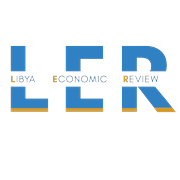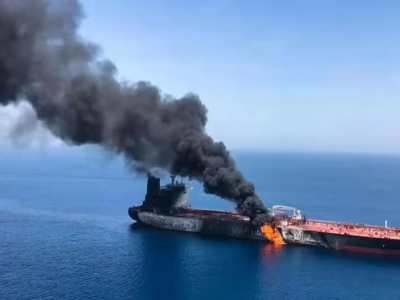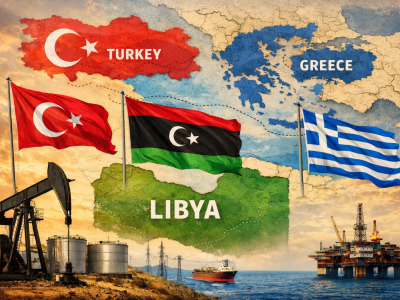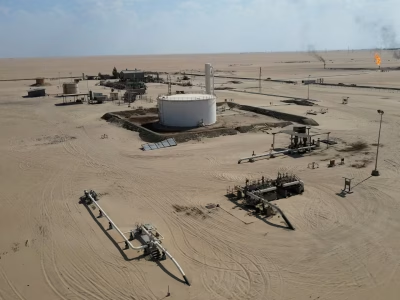Libya Oil Industry: Conflict, Control, and the Fight for Economic Stability
Libya possesses Africa’s largest proven oil reserves and, in proportion to its population, ranks among the most oil-rich economies worldwide.
The nation’s geographic location is also a significant advantage. Its proximity to European markets particularly southern European ports has provided Libyan oil with a notable edge over other Middle Eastern oil producers, as shorter distances to key ports reduce transportation costs.
Historically, the development of production and transport infrastructure has been uncomplicated, linking the oil-rich interior directly to key export terminals along the more densely populated coast. The extensive pipeline network provides the capacity for significant expansion of production whenever conditions allow.
The Libyan economy is highly dependent on hydrocarbon exports. According to the International Monetary Fund (IMF), oil revenues constitute more than 90% of total government income, while non-oil exports of goods and services contribute less than 3% of GDP. Since the oil sector represents the main engine of growth, recurring conflicts around vital energy infrastructure have significantly disrupted commercial activity. This persistent instability has continued to weaken the country’s economy since the fall of Libya’s long time ruler Muammar Gaddafi in 2011.
Since independence in 1951, Libya has undergone shifting political phases that have consistently shaped the trajectory of its oil and gas sector. However, the toppling of Muammar Gaddafi in 2011 marked the beginning of a prolonged era of turmoil. More than a decade of conflict and instability has eroded the country’s vital infrastructure, hollowed out already fragile state institutions, and entrenched a deep political divide between rival authorities in the west (Tripoli) and the east (Benghazi).
After Gaddafi’s fall, armed groups remained loyal to their local leaders rather than transferring allegiance to the new state. They continued to draw resources from the government without providing security or contributing to national stability. The lack of effective national security forces left a power vacuum, allowing these militias to compete for control over Libya’s oil resources. This competition has led to ongoing conflict since 2014, effectively splitting the country between rival factions.
The country has been divided between rival administrations in Tripoli and Benghazi, with each claiming legitimacy. This division has extended to key institutions like the Central Bank and National Oil Corporation, further complicating unification and economic recovery efforts. Despite international support for the Tripoli-based Government of National Unity (GNU), the ongoing conflict between the two sides continues to hinder progress toward a unified and stable government.
Libya continues to suffer from interconnected political and economic crises that weaken state institutions and harm the economy. Militia groups reportedly continue to undermine the legitimate government, targeting its most vital resource: oil revenues. Armed groups frequently finance their activities through illicit oil sales, with increasingly sophisticated schemes that exploit the weakness of state authorities nationwide. As a result, the UN-backed government’s efforts to assert authority across the country have been systematically undermined.
At the core of Libya’s decade-long conflict lies the struggle for control over oil revenues. Armed groups loyal to General Khalifa Haftar, commander of the Libyan National Army (LNA), have repeatedly targeted oilfields and export terminals to assert leverage over the state. In the first half of 2022 alone, these disruptions reduced oil exports by nearly one-third, lowering production to fewer than 800,000 barrels per day.
Since the fall of Muammar Gaddafi in 2011, Libya has not only descended into violence and social fragmentation but has also come under the influence of numerous militia groups that exploit persistent political instability. One notable example was the blockade of oil terminals between January and September 2020 by forces aligned with Khalifa Haftar. This action exacerbated Libya’s economic crisis, causing oil production to collapse from 1.14 million barrels per day in December 2019 to just 100,000. According to the National Oil Corporation (NOC), the disruption generated an estimated $10 billion in financial losses.
While Haftar’s eastern forces have often used oil blockades as leverage, the Tripoli-based administration under Prime Minister Abdul Hamid Dbeibeh has also faced criticism for its management of oil revenues and public funds. Many militia groups across the country continue to benefit from the ongoing political and economic stalemate, with particularly entrenched networks in both the east and west. In Tripoli, the RADA (Special Deterrence Force) and other influential armed groups exert considerable influence over key economic and security institutions. In the east, forces aligned with the LNA maintain similar leverage through their control of territory and strategic assets.
A key driver of the power struggle in Libya is the control and distribution of oil resources. Much of the conflict revolves around different factions and militias trying to take hold of these valuable oil assets. Unless there is effective governance and institution building to manage the equitable distribution of oil revenues, the power struggle is likely to continue.
As hydrocarbons are Libya’s primary source of growth, the ongoing struggle to control this wealth severely hampers economic activities. Years of fighting since the 2011 revolution have left Libya’s oil infrastructure in dire need of modernisation, but instability has stalled progress. On the ground, progress is often inconsistent. Politics are fragmented, local grievances persist, and infrastructure repairs tend to move slowly.
Smuggling is another key issue in Libya. Since Gaddafi’s toppling, there has been a consistent and open competition for the control of smuggling routes, which has contributed to the outbreak of localised conflict. For instance, Trans-Saharan smuggling routes have evolved from passageways for the informal trade of illicit goods, to conduits for the smuggling of weapons, drugs, fuel, counterfeit cigarettes and even people. The criminal activities and corruption associated with trafficking undermine domestic stability in Libya.
The nation’s economy has always been closely tied to its evolving political situation. Therefore, strong international and regional support is needed to encourage rival sides to reach a consensus on key issues, including election laws, the constitution, the unification of state institutions, and the establishment of security across the country. However, the complex web of often conflicting interests, both within Libya and beyond, could easily threaten this process.
U.N.-brokered attempts to organise parliamentary and presidential elections have repeatedly faltered, extending Libya’s political stalemate and worsening security conditions in the oil-rich country.
The country requires comprehensive economic reforms to address the demands of its population. Key priorities should include restructuring economic institutions, achieving functional unification, dismantling the quasi-parallel bodies operating in the country’s east, and ensuring transparency in the distribution of oil revenues.
Libya’s oil industry, while rich in reserves and strategically located, faces persistent challenges due to political instability and damaged infrastructure. Years of conflict have left vital oil facilities in urgent need of repair and modernization to restore production capacity and economic stability. Enhanced international cooperation is essential, particularly for advancing seismic research in the Eastern Mediterranean. A new agreement such as collaboration with Turkish Petroleum (TPAO) could provide valuable technical expertise and investment. The recent Libya–Türkiye agreement signals a positive step forward, fostering opportunities for joint oil research and infrastructure development, and supporting Libya’s path toward economic recovery and sectoral resilience.
The views expressed in this article are those of the author, and do not necessarily represent the editorial position of this publication.
Ferhat Polat is a researcher and analyst specialising in North African geopolitics and security, with a particular focus on Libya. He holds an MA in Middle East Studies from the Institute of Arab and Islamic Studies at the University of Exeter.
X: @Ferhattpol




